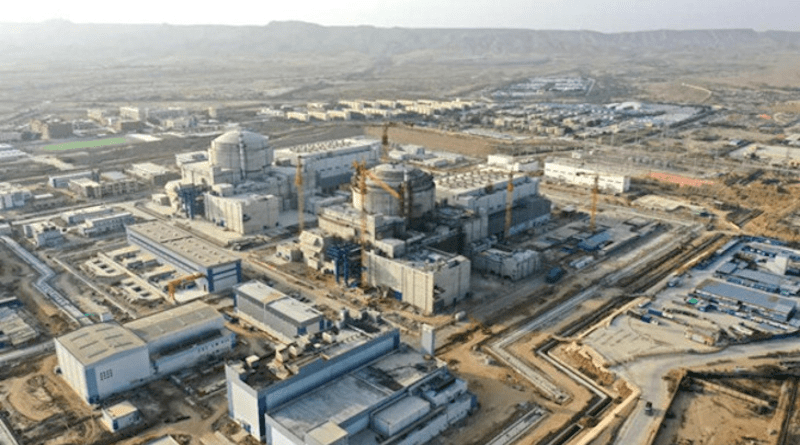Fostering Energy Security: China-Pakistan Collaboration – OpEd
By Shehla Rahim
The energy crisis has long plagued Pakistan, and its impact on business and economic growth cannot be underestimated. According to a World Bank report, electricity shortages present a more significant hindrance to business operations than corruption itself.
Addressing this crisis has been a priority for Pakistan, and its collaboration with China in the field of peaceful nuclear energy is a testament to their shared commitment to finding sustainable solutions. While concerns have been raised by some states, including India, about the nature of Pakistan’s nuclear cooperation, it’s crucial to examine how this collaboration adheres to IAEA regulations and safety mechanisms.
In the modern era, nuclear technology has gained prominence due to its versatility across various sectors, including agriculture, energy production, medicine, pharmaceuticals, scientific research, and industries. With expensive and environmentally polluting alternatives, nuclear technology offers an economically viable and eco-friendly solution. Thus, Pakistan’s pursuit of peaceful nuclear energy is in line with non-proliferation regulations. Collaborating closely with China, a trusted ally, Pakistan aims to harness nuclear energy for peaceful purposes. China’s involvement extends beyond energy generation and encompasses areas such as food processing and agriculture.
Amid Pakistan’s pressing supply and demand gaps, the cooperation in nuclear energy has emerged as a significant bilateral agenda. This collaboration underscores the progressive ties between Beijing and Islamabad. Notably, a nuclear deal was signed between Pakistan Atomic Energy Commission and China Zhongyuan Engineering Cooperation on September 8, 2021. This ten-year agreement encompasses various aspects, including uranium processing, nuclear fuel supply, technology transfer, and the establishment of reactors. The primary objective of this comprehensive agreement is to construct and maintain nuclear power projects in Pakistan.
China’s track record in constructing nuclear projects in Pakistan is noteworthy. The Chashma Nuclear Power Complex (CHASHMA) and Karachi Nuclear Power Complex (KANUPP) exemplify this collaboration. CHASHMA I, built in 2000 under IAEA protocols, has a capacity of 300 megawatts and a life span of forty years. Subsequently, China’s support enabled the upgrade of CHASHMA I into CHASHMA II in 2005, maintaining IAEA compliance. Furthermore, Pakistan’s partnership with China extended to CHASHMA units 3 and 4 in 2010, with China covering 82 percent of the project cost. These nuclear plants have a life span of forty years as well.
Pakistan’s collaboration with China also extends to the Karachi Nuclear Power Complex, a civilian nuclear facility producing 1,000 MW of electricity. KANUPP-1 and KANUPP-2, 3, and 4 contribute significantly to Karachi’s energy needs. Under the oversight of the IAEA, this complex is a testament to international cooperation in nuclear energy development. Financially supported by various entities, including China National Nuclear Corporation and the International Atomic Energy Agency, KANUPP exemplifies the productive outcomes of China-Pakistan collaboration.
This enduring cooperation reflects the deep-rooted friendship and trust between China and Pakistan. It’s crucial to note that all agreements and projects undertaken by both nations adhere to IAEA protocols and principles. However, Pakistan’s energy needs continue to grow, necessitating further peaceful nuclear energy agreements. These agreements would be instrumental in ensuring a sustainable energy sector and contributing to the country’s overall development.
In conclusion, China-Pakistan’s collaboration in peaceful nuclear energy is a testament to their shared commitment to energy security and sustainable development. This cooperation adheres to international guidelines and principles set by the IAEA. Pakistan’s quest for energy solutions that are both economically viable and environmentally friendly aligns well with the potential of nuclear technology. As both countries navigate the challenges of the energy sector, their cooperative efforts demonstrate the strength of their bilateral relations and their dedication to a brighter, more energy-secure future.

